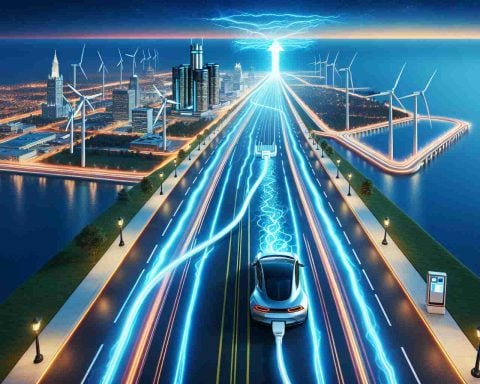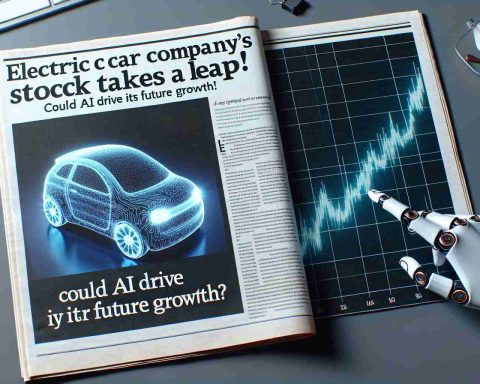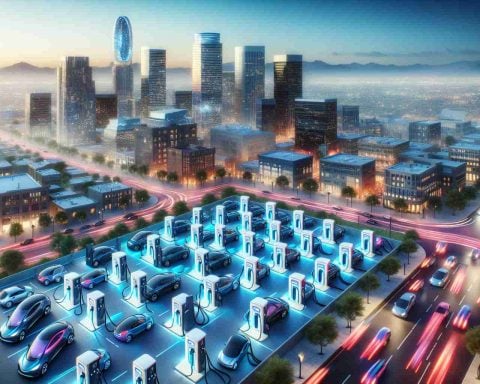The Future of Wealth Lies Beyond Earth
As Earth grapples with growing resource constraints, space mining emerges as a beacon of hope, poised to redefine how we acquire precious materials and expand our horizons. The fusion of cutting-edge developments in AI, robotics, and aerospace technology sets the stage for this nascent industry, inviting new perspectives on economic and environmental paradigms. Here, we explore the profound implications of space mining, its innovations, and the road ahead.
Space Mining: A Solution to Earth’s Crises
Venturing into space for mining offers a radical approach to addressing Earth’s dwindling resources by accessing mineral-rich asteroids. These celestial bodies harbor an abundance of metals like platinum and rare earth elements, crucial for modern technology. By cultivating these; industries can potentially ease the pressure on terrestrial resources, mitigating the environmental impact caused by conventional mining.
Pioneering Technologies in Play
Recent advancements have paved the way for the feasibility of space mining through:
– AI and Robotics: These technologies are revolutionizing mining operations by enabling autonomous and remote-controlled endeavors in space’s challenging environment.
– Efficient Propulsion Systems: New propulsion methods allow for more economical space missions, facilitating routine asteroid exploration and retrieval missions.
– In-Space Manufacturing Technologies: Developing techniques to utilize resources in situ could enable space infrastructure creation, supporting future human expansion into space.
Navigating Challenges and Ethical Concerns
Despite its promise, space mining must overcome significant regulatory and ethical obstacles. The absence of detailed legal frameworks for space resource extraction needs immediate attention to prevent potential conflicts over territory and assets. Additionally, there are concerns about the potential impact on celestial bodies, raising ethical questions about our exploitation of outer space.
Economic Potential and Industry Outlook
The potential of space mining to revolutionize global markets with significant economic returns does not go unnoticed. Industry leaders anticipate the creation of a lucrative sector, drawing interest from space travel giants like SpaceX and Blue Origin. As the technology becomes more viable, a surge in investment and international cooperation could herald a new economic era.
Sustainability and Global Cooperation
Ensuring sustainable and secure operations is crucial as space mining evolves. Emphasizing eco-friendly technologies can minimize adverse impacts both on Earth and in space, while international collaboration aims to address security concerns and safeguard resources.
In summary, space mining holds the key to unlocking unprecedented economic and technological opportunities. As humanity ventures into this new domain, the potential for societal transformation is monumental, promising to redefine our future and our place within the cosmos.
The Environmental and Economic Ramifications of Space Mining
As Earth faces growing resource scarcity, the prospect of space mining as a sustainable solution to this looming crisis offers a glimpse into a transformed future. Space mining is not only about sourcing precious minerals from celestial bodies but also involves reconsidering our approach to resource acquisition, economic growth, and environmental stewardship. This revolutionary endeavor presents both opportunities and challenges that could reshape humanity’s relationship with the environment and the global economy, significantly impacting the future of human civilization.
The Environmental Impact of Space Mining
At its core, the primary environmental incentive for space mining lies in its potential to reduce the ecological footprint associated with traditional mining practices on Earth. Conventional mining is often characterized by significant land degradation, water pollution, and loss of biodiversity. By turning to asteroids and other celestial bodies for minerals like platinum and rare earth elements, we could significantly lessen these detrimental effects.
Moreover, the technologies developed for space mining—such as advanced AI and robotics—are designed to minimize human intervention and reduce waste. These systems could potentially be adapted for use in terrestrial mining, fostering greener operations that are less invasive. The efficient propulsion systems and in-space manufacturing technologies born from this industry might further contribute to reduced carbon emissions, giving rise to more sustainable practices on Earth.
Economic Impacts and Future Human Expansion
Economically, space mining could herald a new era of prosperity. Access to abundant off-Earth resources could drive down the costs of materials critical for electronics, renewable energy technologies, and even infrastructure development. This could, in turn, make these technologies more accessible globally, supporting economic advancements, especially in developing nations.
The potential financial returns from space mining have also sparked interests from major corporations and governments, prompting increased investment in space technologies. Such economic activity could lead to a boom akin to the early days of the tech revolution, creating new jobs, industries, and markets.
As humanity prepares to expand beyond Earth, space mining stands to play a crucial role. The idea of in-space manufacturing suggests a future where habitats and infrastructure can be built using extraterrestrial resources, reducing reliance on Earth-based supply chains. This advancement is integral for the long-term sustainability of human colonies on the Moon, Mars, or beyond, marking the beginning of a multiplanetary human society.
Connection to the Future of Humanity
The implications of space mining extend beyond mere resource acquisition and economic boom. At a philosophical level, this endeavor could fundamentally alter how we perceive resources and our responsibilities as stewards of not just our planet but the universe. The ethical and regulatory frameworks we develop for space mining will set precedents for how humanity interacts with space environments, potentially fostering a greater sense of global unity and cooperation.
Furthermore, as the world grapples with the climate crisis and other ecological challenges, space mining introduces a paradigm shift, offering a means to balance human progress with environmental preservation. Successfully integrating space mining could symbolize our transition into a more responsible species, capable of leveraging technological advancements for sustainable growth.
In conclusion, while space mining presents exciting prospects, it requires delicate handling of environmental, economic, and ethical issues to ensure it benefits humanity as a whole. If carried out thoughtfully, it promises not only to alleviate Earth’s resource woes but also to lead us into a new era of exploration and coexistence within the cosmos, setting the stage for the next great chapter in human history.
Unlocking the Final Frontier: The Economic Promise of Space Mining
Understanding the Drive Behind Space Mining
As Earth faces increasing resource limitations, space mining stands out not just as an option but as a potential necessity to sustain our technological progress. As the demand for rare earth elements and precious metals continues to grow, experts see space mining as the frontier that could fulfill these escalating needs by tapping into the vast reserves of minerals in asteroids and other celestial bodies.
Innovations Elevating Space Mining
Space mining is at the cusp of a technological revolution. Here are some emergent trends and technologies pivotal to its progress:
– Machine Learning Applications: Machine learning is facilitating refined data analysis techniques to identify the most resource-rich asteroids, optimizing mission planning and risk assessment.
– Sustainable Spacecraft Design: Sustainable designs are now at the forefront, focusing on reducing fuel consumption and boosting energy efficiency, crucial for long-haul space missions.
– Modular Space Stations: The development of modular space stations could allow for more flexible and scalable operations, serving as hubs for mining missions, processing sites, and refueling stations.
Facing Regulatory Hurdles
The legal landscape for space mining remains a gray area. While the Outer Space Treaty provides a basic framework, there is a pressing need for cohesive international agreements. These should address property rights, resource allocation, and environmental responsibilities to foster a fair and competitive market while avoiding conflicts.
Major Players and Market Dynamics
The space mining industry is attracting a mix of established aerospace leaders and innovative startups. Key players like SpaceX and Blue Origin are already laying the groundwork with significant investments in infrastructure and technology. Meanwhile, nascent firms are entering the foray, driven by the promise of new economic opportunities and the potential for disruptive technologies.
Pros and Cons of Space Mining
# Pros:
– Resource Diversification: Opens access to a wider range of materials beyond Earth’s limits.
– Economic Gains: Could contribute trillions to the global economy.
– Technological Advancements: Propels new technologies that could benefit other sectors.
# Cons:
– High Initial Investment: Involves substantial upfront costs with uncertain returns.
– Unclear Regulation: Potential for legal and territorial disputes in international contexts.
– Environmental Concerns: Raises questions about the ethical treatment of celestial bodies.
Predicting the Impact
The space mining industry’s trajectory suggests profound implications for both Earth and space. Predictions highlight a gradual, yet transformative shift where space resources could support Earth’s economy, sparking advancements in sectors like technology, manufacturing, and even healthcare—possibly revolutionizing our way of life.
For comprehensive insights and updates on this burgeoning industry, visit NASA’s official website and SpaceX’s domain.
In conclusion, as humanity stands at the threshold of space mining, the balance of opportunity and challenge will guide us toward a future where economic growth and sustainable exploration coexist, potentially changing the fabric of society as we know it.


















